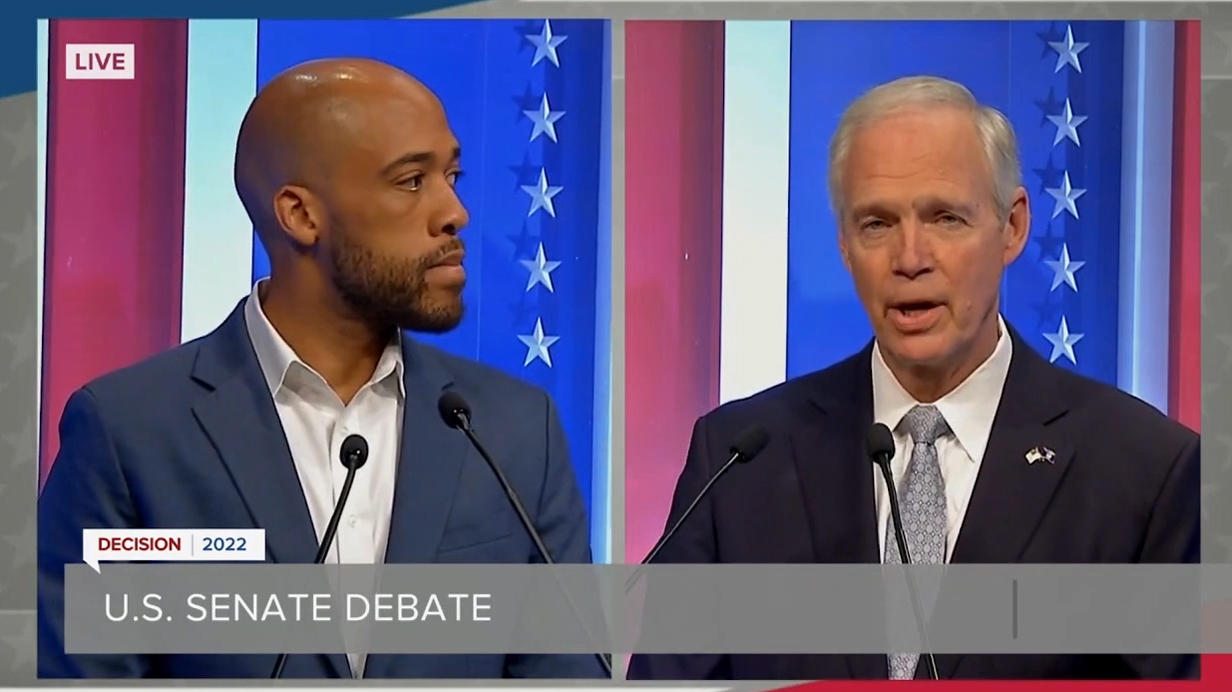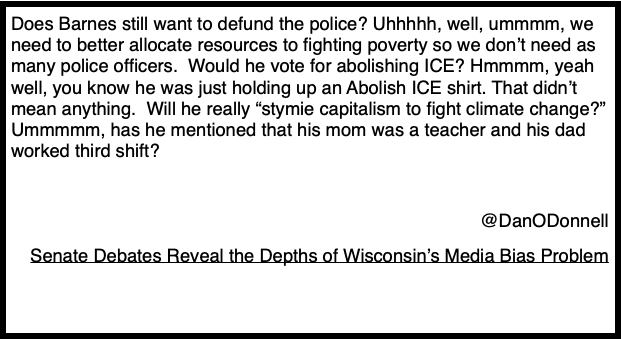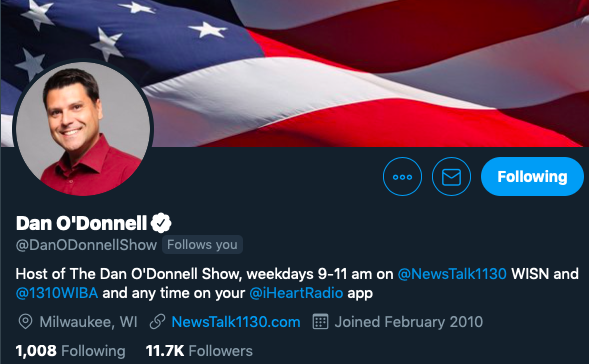
As Dan O’Donnell notes, the real takeaway from the two Senate debates wasn’t anything the candidates said, but what the media’s questions and presentation did to help Democrat Mandela Barnes.
Oct. 14, 2022
Perspective by Dan O’Donnell

Wisconsin Senator Ron Johnson went to a debate Thursday night and a Mandela Barnes rally broke out. The crowd for Today’s TMJ 4’s farce wildly applauded Barnes, repeatedly booed and heckled Johnson, and whipped itself into such a partisan frenzy that it accidentally gave away the media bias game by loudly cheering at some of the questions that moderator Shannon Sims was asking Johnson.
“Audience, please,” moderator Charles Benson chided, perhaps recognizing how obvious it looked that both Sims and the crowd were doing their best to make Barnes look as good as possible (admittedly not an easy task).
As fair-minded and professional as Benson was, though, he was an overmatched ringmaster for this circus. And ironically, it seemed to throw Barnes off his game, as the constant applause that interrupted his answers caused him to fumble many of his best lines.
This serves as an apt metaphor for Barnes’ campaign: Both the media and his fellow Democrats so protected him during the primary that once he faced actual questions about his record during the general election, he found himself unable to come up with satisfactory answers.
Does he still want to defund the police? Uhhhhh, well, ummmm, we need to better allocate resources to fighting poverty so we don’t need as many police officers. Would he vote for abolishing ICE? Hmmmm, yeah well, you know he was just holding up an Abolish ICE shirt. That didn’t mean anything. Will he really “stymie capitalism to fight climate change?” Ummmmm, has he mentioned that his mom was a teacher and his dad worked third shift?
Neither the members of the press who are paid to ask tough questions of candidates ever asked Barnes about his radical positions, and none of Barnes’ primary opponents—who could have defeated him by characterizing him as unelectable—ever really criticized him. They were cheering right along with the TMJ 4 crowd.
And in two general election debates, Barnes still hasn’t had to answer a substantive question about his far-left background. As much of a spectacle as Thursday night’s debate was, it paled in comparison to the lengths the six panelists in Sunday night’s Wisconsin Broadcasters Association debate went to protect Barnes.
Out of 19 total questions asked by the six panelists, there was not a single one on inflation, the single biggest issue facing America today and the one that Wisconsinites have told two consecutive Marquette University Law School Polls was their most important. But there were two questions on abortion, two on January 6th, two on student loan forgiveness, one on climate change, one on amnesty for illegal immigrants, another on water pollution, and another on gun control. Oh yeah, and the very first question was about marijuana legalization.
According to September’s Marquette Poll—which was the most recent at the time of Sunday’s debate—the three most important issues to voters are “inflation,” “crime,” and “accurate vote count.” There was just one question on any of those (crime), and it came a half hour into the debate.
@DanODonnell - And in two debates, Barnes still hasn’t had to answer a substantive question about his far-left background or policy proposals Click To TweetNot surprisingly, there was not a single question asked about any of the three issues that Republicans told the Marquette Poll were most important to them—”inflation,” “taxes,” and “accurate vote count”—but there were five on the three issues most important to Democrats: “Gun violence” (one question), “abortion” (two questions), and “climate change” (one question).
The only conclusion one could draw from this is that the same issues that are important to Democrats are important to the members of the media asking the questions, creating the reasonable inference that those members of the media are themselves Democrats.
Of course, they always have been, but they have always at least tried to hide it. The past week, though, has pulled the mask off for the entire state to see and, ultimately, that more than anything Johnson or Barnes said, will be the most significant takeaway from the two Senate debates.
